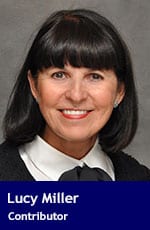 Forty-five years into a career as an educator and social sector leader, I have never been involved in politics. But this election has become too important to sit on the sidelines. I’ve lived all over Canada, spending years in Nova Scotia, Ontario, and Alberta. I’m not sure I’ve ever seen the country more divided, angry and rudderless.
Forty-five years into a career as an educator and social sector leader, I have never been involved in politics. But this election has become too important to sit on the sidelines. I’ve lived all over Canada, spending years in Nova Scotia, Ontario, and Alberta. I’m not sure I’ve ever seen the country more divided, angry and rudderless.
Maybe social media is to blame — most of us would never say to someone’s face what gets said online. Politicians are also part of the problem and sometimes seem more interested in sowing seeds of division than unity. Media outlets, looking for the most sensational stories to drive readership, can also fan the flames.
The days of town hall meetings and respectful debate are often replaced by attacks villainizing opponents. The loudest voices on the margins are the ones that get heard. But loud isn’t as important as meaningful, nor does volume reflect how large groups of people think and feel. Can election conversations be a time for meaningful discussions and an opportunity to disagree without being disagreeable? Can we bring more voices to the table?
That’s what Canada Powered by Women is doing. It’s a new initiative whose goal is to engage more women in politics and invite them into a national conversation about the big issues facing Canada. We have opinions on what matters in this election, and we already have a following of thousands of Canadian women who also have views on those issues. We hope to inform, connect, and mobilize women who want their voices to be represented in the media and in policy.
This past month we commissioned a national survey of 1,500 Canadians from Leger Research to capture the perspectives of women across the country. The survey findings capture a frustration, as well as a focus:
-
- Half of female respondents (56 per cent) seek out multiple sources of information before making a decision on major issues.
- About the same number (57 per cent) think there are too many competing messages to know what to believe and less than one-third (28 per cent) feel fully informed on the issues.
- One in five female respondents (20 per cent) believes that the average citizen’s voice gets reflected in the media.
- Nearly two-thirds (61 per cent) said that the media only shows the most extreme political views.
Nearly seven in ten (69 per cent) female respondents say they will decide who to vote for based on what is best for Canada. - Women are speaking up — nearly one quarter (24 per cent) of female respondents said they lead important topics for discussion in social settings. However, that’s much lower than the 40 per cent of male respondents who say they do the same.
To bolster the discussion, our campaign engages women in ‘Conversations That Matter’ in a respectful online community where women can talk politics without the politics, and ask important questions about the people and issues that are in focus for the election. The discussion is also done in a format that is informative, digestible, non-confrontational, and even fun. In the process, we hope to shed light on key issues, and capture and share perspectives and opinions of other women.
What started as an initiative to help expand the conversation around Canadian energy has grown to address this much bigger need of empowering women voters. As a registered third party, we have a perspective for change and balanced approaches to policy that is widely shared. But our role isn’t to tell other women how to vote. It’s to help them to get really clear about what they care about and who they trust—and vote for that.
During this election, many women will wonder if their one voice can make a difference. We’re here to say, yes, it will! By standing together and making our voices heard, we can influence the big issues facing Canada. Won’t you join us?
Lucy Miller, PhD, is an award-winning educator and social sector leader with operational experience in Alberta, Ontario, and Nova Scotia, and recognized for creating exceptional cultures as Chief Superintendent of Calgary Catholic School District and President & CEO of United Way of Calgary and Area. Miller has been named one of Alberta’s 50 Most Influential People, one of Canada’s 100 Most Powerful Women, and Calgary’s Citizen of the Year.
The views, opinions and positions expressed by columnists and contributors are the author’s alone. They do not inherently or expressly reflect the views, opinions and/or positions of our publication.
